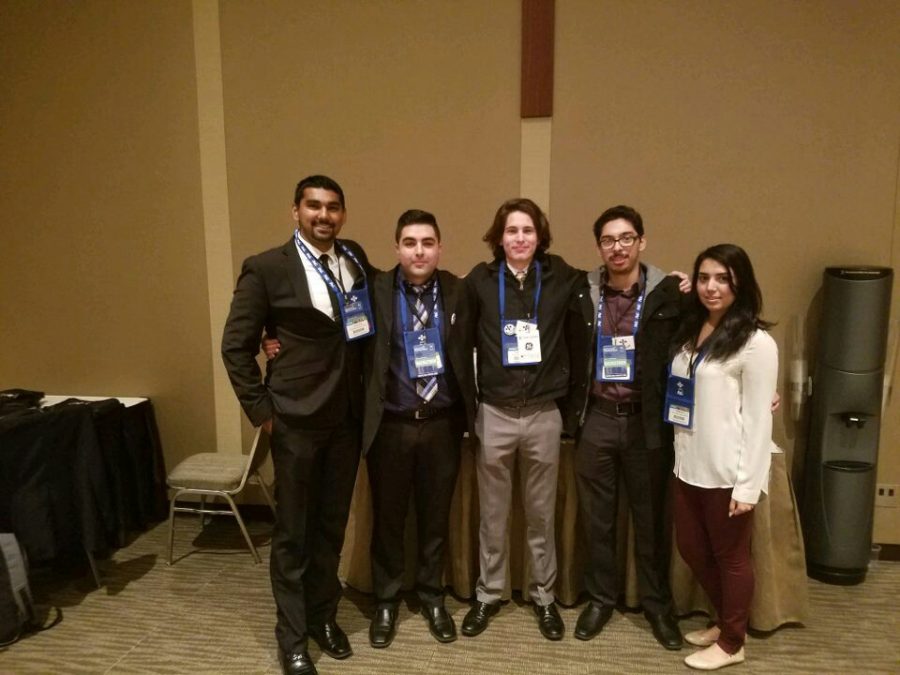UPDATE: Dec. 3 at 4:58 p.m. — The photo caption has been corrected because Vanessa Cruz was mistakenly referred to as ‘Venessa Cruz’ in the original version.
A team of five people from Sacramento State’s chapter of the Society of Hispanic Professional Engineers (SHPE) won $10,000 by prevailing at a ‘hackathon’ competition at a national SHPE conference in Seattle last month.
The goal of the hackathon was to create “something hardware based,” according to Augustine Orozco, the vice president of the chapter. “The issue at hand was ‘How do we improve the lives of farm workers and migrants?’ ”
The Sac State team decided to create a website to collect information on agricultural working conditions for OSHA, the federal agency responsible for ensuring workplace safety.
“OSHA can do random checks to see if rights are being upheld,” Orozco said. “Are there 10 water stations for 100 people? If there are not, they can be fined.”
Team member Jesus Lopez Reynosa, whose father was a farm worker, said that it would be more effective if OSHA would collect information on a website rather than through in-person representatives.
“If OSHA goes around asking farm workers what’s going on, they probably won’t say because they’ll fear getting deported or something so doing it anonymously would be better,” Lopez Reynosa said. “They don’t know what would be too much to give or too much to ask.”
Orozco agreed, adding that culture also played a role in farm workers underreporting poor working conditions to OSHA representatives.
“It’s typical in Hispanic culture — especially as a farm worker — they were all very proud of the work they did. Anything that got in the way of them working was problematic,” Orozco said. “If you were to ask a farm worker to have a watch to make sure they were taken care of, they’d ask ‘why would I do that?’
The hackathon was a 36 hour competition, and during that time the Sac State team created a website where people could report anonymously and where symbols were utilized as part of the questions so that migrants and others who can’t speak English can understand, Orozco said.
“We created a website to create better communication with universal pictures anyone can understand — a picture of water, a picture of the bathroom sign instead of asking ‘how many bathroom breaks do you take?’ ”
Team members forewent sleep to try and finish their project before the deadline.
“It was ‘as long as we can stay up,’ ” said German Ortega, a team member. “I’d sleep on the chairs for one hour or two and then just continue.”
Ortega said that watching the other team’s presentations made him nervous.
“Our project wasn’t entirely finished,” Ortega said. “I was surprised (at the win). Augustine was more confident. I said ‘I don’t think we’re going to win.’ ”
The team members split the $10,000 among themselves. The website that the students created isn’t live, but the code is in the hand of the hackathon judges.






























































































































